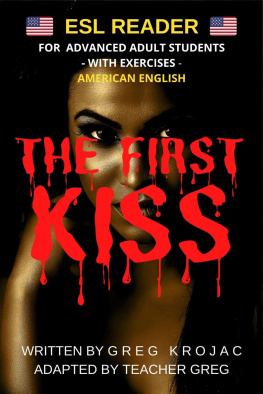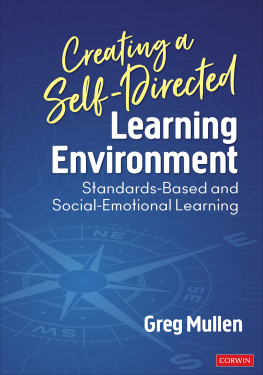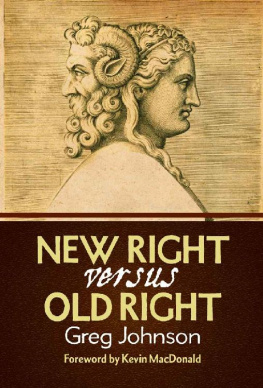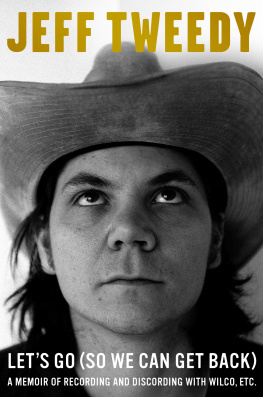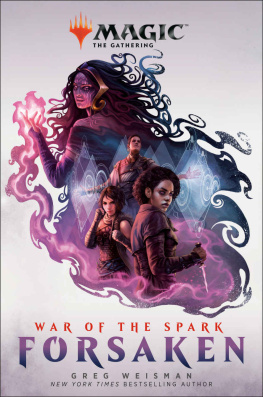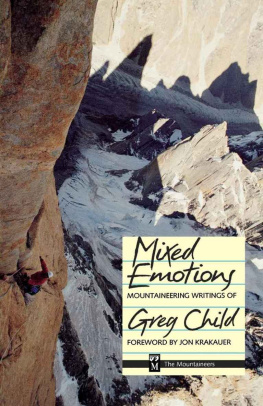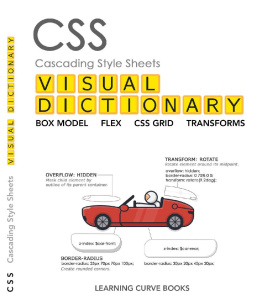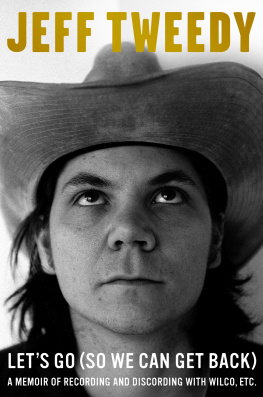Greg Kot - Wilco: Learning How to Die
Here you can read online Greg Kot - Wilco: Learning How to Die full text of the book (entire story) in english for free. Download pdf and epub, get meaning, cover and reviews about this ebook. year: 2004, publisher: Broadway, genre: Non-fiction. Description of the work, (preface) as well as reviews are available. Best literature library LitArk.com created for fans of good reading and offers a wide selection of genres:
Romance novel
Science fiction
Adventure
Detective
Science
History
Home and family
Prose
Art
Politics
Computer
Non-fiction
Religion
Business
Children
Humor
Choose a favorite category and find really read worthwhile books. Enjoy immersion in the world of imagination, feel the emotions of the characters or learn something new for yourself, make an fascinating discovery.

- Book:Wilco: Learning How to Die
- Author:
- Publisher:Broadway
- Genre:
- Year:2004
- Rating:4 / 5
- Favourites:Add to favourites
- Your mark:
- 80
- 1
- 2
- 3
- 4
- 5
Wilco: Learning How to Die: summary, description and annotation
We offer to read an annotation, description, summary or preface (depends on what the author of the book "Wilco: Learning How to Die" wrote himself). If you haven't found the necessary information about the book — write in the comments, we will try to find it.
Wilco: Learning How to Die — read online for free the complete book (whole text) full work
Below is the text of the book, divided by pages. System saving the place of the last page read, allows you to conveniently read the book "Wilco: Learning How to Die" online for free, without having to search again every time where you left off. Put a bookmark, and you can go to the page where you finished reading at any time.
Font size:
Interval:
Bookmark:
Without the cooperation of Wilco, this book would not have been possible, and I am grateful to them. From the outset, Jeff Tweedy and his bandmates, past and presentLeroy Bach, Jay Bennett, Ken Coomer, Bob Egan, Max Johnston, Mikael Jorgensen, Glenn Kotche, and John Stirratt were unfailingly generous with their time and forthcoming with their answers despite my sometimes intrusive questions. Not once did they seek to read, steer, or impede my efforts, even though I explored a number of delicate subjects that they had rarely, if ever, publicly discussed before.
Dozens of people inside and outside the worlds of Wilco and Uncle Tupelo went above and beyond in aiding my research. I am especially grateful to Bob and Jo Ann Tweedy, and to Sue Miller, for opening their homes and their archives to me. Tony Margherita also shared hours of conversation, provided leads, and paved the way for interviews crucial to rounding out the bands story. To everyone I interviewed for this book (including several whose quotations do not appear anywhere within the text but provided invaluable background information or confirmed certain details) my sincerest thanks: Michael Ackerman, Bob Andrews, Bill Bentley, David Bither, Peter Blackstock, Billy Bragg, Gary Briggs, Peter Buck, Edward Burch, Richard Byrne, Joe Camel, Andy Cirzan, Daniel Corrigan, Wayne Coyne, Heather Crist, David Dethrow, Jay Farrar, Wade Farrar, Rick Gershon, Darin Gray, Josh Grier, Nora Guthrie, Mike Heidorn, Brian Henneman, Matt Hickey Sam Jones, David Kahne, Chris King, Howie Klein, Peter Koepke, Paul Q. Kolderie, Gary Louris, Scott McCaughey Joe McEwen, Bob Merlis, Nick Miller, Mike Mills, Thurston Moore, Jim ORourke, Jeff Pachman, Jonathan Parker, Frank Riley Elliot Roberts, Eric Rujanitz, Nick Sakes, Rene Sailer, Steve Scariano, Sean Slade, Laurie Stirratt, Ken Waagner, Janet Weiss, and Neil Young.
Thanks also to my small but dedicated team of researchers and assistants, especially Sandy Travers, who transcribed endless hours of interviews, and Chris Castaneda, who tracked down countless hours of Wilco and Loose Fur concert tape that affirmed and sometimes debunked the fuzzy recollections of those involved. Also devoting time or offering research assistance to this effort were Jason Saldana, Cheryl Weissman, Jeff Sabatini, Donna Murphy, John Jackson at Sony Legacy, Daniel Durchholz, John Bitzer, Deb Bernardini, David Morrison, Marty Perez, Joshua Klein, Matthew Lurie, Andy Downing, and my Chicago Tribune colleagues Stacey Wescott and Jennifer Fletcher.
David Dunton was a good friend long before he was my agent, and his judgment and counsel have been invaluable. Regina Joskow Dunton was among the first to plant the idea that I could and should be writing books about our mutual passion, music. Gerry Howard was every bit the editor he was cracked up to be and more, and I thank him for shepherding this project at Dou-bleday Broadway. Beth Haymaker offered valuable comments and guidance on the manuscript when I needed them most.
The writers and editors I admire and count as friends are far too numerous to mention, but I would especially like to cite the following for their advice, inspiration, and prose: Jim Higgins, Tom Moon, the late New York Times critic and blues scholar Robert Palmer, Ira Robbins, Jack Rabid, and Greil Marcus (thank you, Greil, for Mystery Train). That goes double for Jim DeRogatis: I couldnt ask for a worthier counterpart, even as we butt heads on everythingincluding Wilco.
All my colleagues and editors, past and present, at the Chicago Tribune, especially Jim Warren, Scott Powers, and Gary Dretzka, set a high standard for journalism that I am still striving to attain.
Finally, my admiration for my parents, Len and June, deepens with every year. This book is as much a product of their values as mine. The pride my parents-in-law, Dan and Pat Lyons, took in this effort has not gone unnoticed. My wifes uncle Denny Coll believed in this endeavor even before I did. My daughters, Katie and Marissa, made sure I made my deadlines by asking me nearly every day how the book was coming along. My wife, Deb, supported this effort in countless ways, big and small, that were beyond selfless. She not only stood by her man; she propped him up on many occasions. More than anyone else, this book is for her.
Since 1990, Greg Kot has been the music critic at the Chicago Tribune, where he has established a reputation not just for his comprehensive coverage of popular musicfrom hip-hop to rock en espanolbut for enterprising reportage on music-related social, political, and business issues. With his Chicago Sun-Times counterpart Jim DeRogatis, he co-hosts Sound Opinions, the worlds only rock n roll talk show, on radio, television, and the Web (www.soundopinions.net). Kot is a regular contributor to Rolling Stone and other national periodicals, and his work has also appeared in Encyclopaedia Britannica and numerous books, including Harrison: A Rolling Stone Tribute to George Harrison and The Trouser Press Guide to 90s Rock. He lives on Chicagos Northwest Side with his wife, two daughters, and far too many records. Please visit the official Wilco: Learning How to Die website at www.wilcobook.com.
YOU HAVE TO LEARN HOW TO DIE
Jeff Tweedy was sobbing as he sang. He and his bandmates in Wilco were coming off a grueling tour that had seen them play too many shows too far from home for far too long, and now they had just finished up four days of recording sessions in an Austin, Texas, studio. Listening to the playback, Tweedy could measure the toll. He could hear the depression and exhaustion in his voice, the misgivings about the life he had made for himself. Music was both the best thing that had ever happened to him and the worst. It kept him away from his wife and family for long stretches, and now he was beginning to doubt everything: his music, his marriage, the sound of his own voice. The songs held no answers; they simply channeled what was in his heart and mind. Both, frankly, had seen better, brighter days. I dreamed about killing you again last night, and it felt alright to me. He heard himself sing the words as they marched past him; rather than cushioning or muffling the lyrics, the music seemed to highlight them, making them even more difficult to bear. All Jeff Tweedy could think was, Ive failed. Ive let the band down. I sound like the most depressed person in the world.
But he hadnt failed. He had taken the first blind leap into an album that would prove to be one of the defining moments of his and Wilcos career. Summerteeth would expose his inner world to an almost unbearable degree but, with the help of his bandmates, somehow turn it into life-affirming music.
A couple of years later, Tweedy would write a song called War on War, in which he would sing, You have to learn how to die, if you wanna wanna be alive.
In that Austin recording studio, Tweedy died a little. It was a feeling he already knew intimately. There was the moment Jay Farrar took the band they had built together, Uncle Tupelo, and tore it apart by telling Jeff Tweedy he couldnt stand working with him anymore. The moment Tweedy turned an alternative-country concert for a club full of Johnny Cash fans into a punk-rock kamikaze mission. The night Tweedy baited a British audience until they wanted to tear his fool Yankee head off. And still to come would be the moment when he found his record label didnt want the best record hed ever made.
Beneath the facade of the small-town newspaper-delivery boy that he once was, the kid who wouldnt speak unless he was spoken to, Jeff Tweedy brings a self-confidence that cannot be ignored or denied. It can be willful and sometimes almost cruel, but it is not indiscriminate or random. The personality can best be glimpsed and assessed through the music, because Tweedy is a songwriter of knee-buckling honesty. The emotions in his songs examine the heart of darkness that, to some degree, lurks in all of us. His great subject is intimacywith a lover, with a friend, with music itself- and its price. His songs teeter between bliss and oblivion: There is something wrong with me; Ive got reservations about so many things, but not about you; I am trying to break your heart; Playing Kiss covers, beautiful and stoned.
Font size:
Interval:
Bookmark:
Similar books «Wilco: Learning How to Die»
Look at similar books to Wilco: Learning How to Die. We have selected literature similar in name and meaning in the hope of providing readers with more options to find new, interesting, not yet read works.
Discussion, reviews of the book Wilco: Learning How to Die and just readers' own opinions. Leave your comments, write what you think about the work, its meaning or the main characters. Specify what exactly you liked and what you didn't like, and why you think so.


